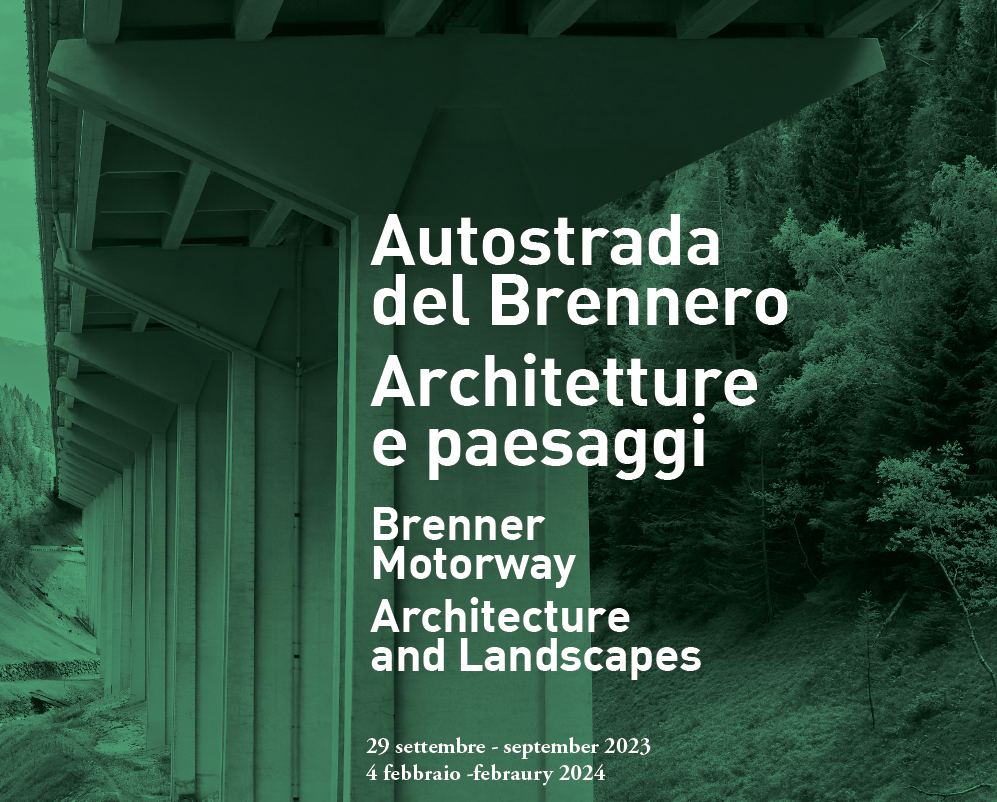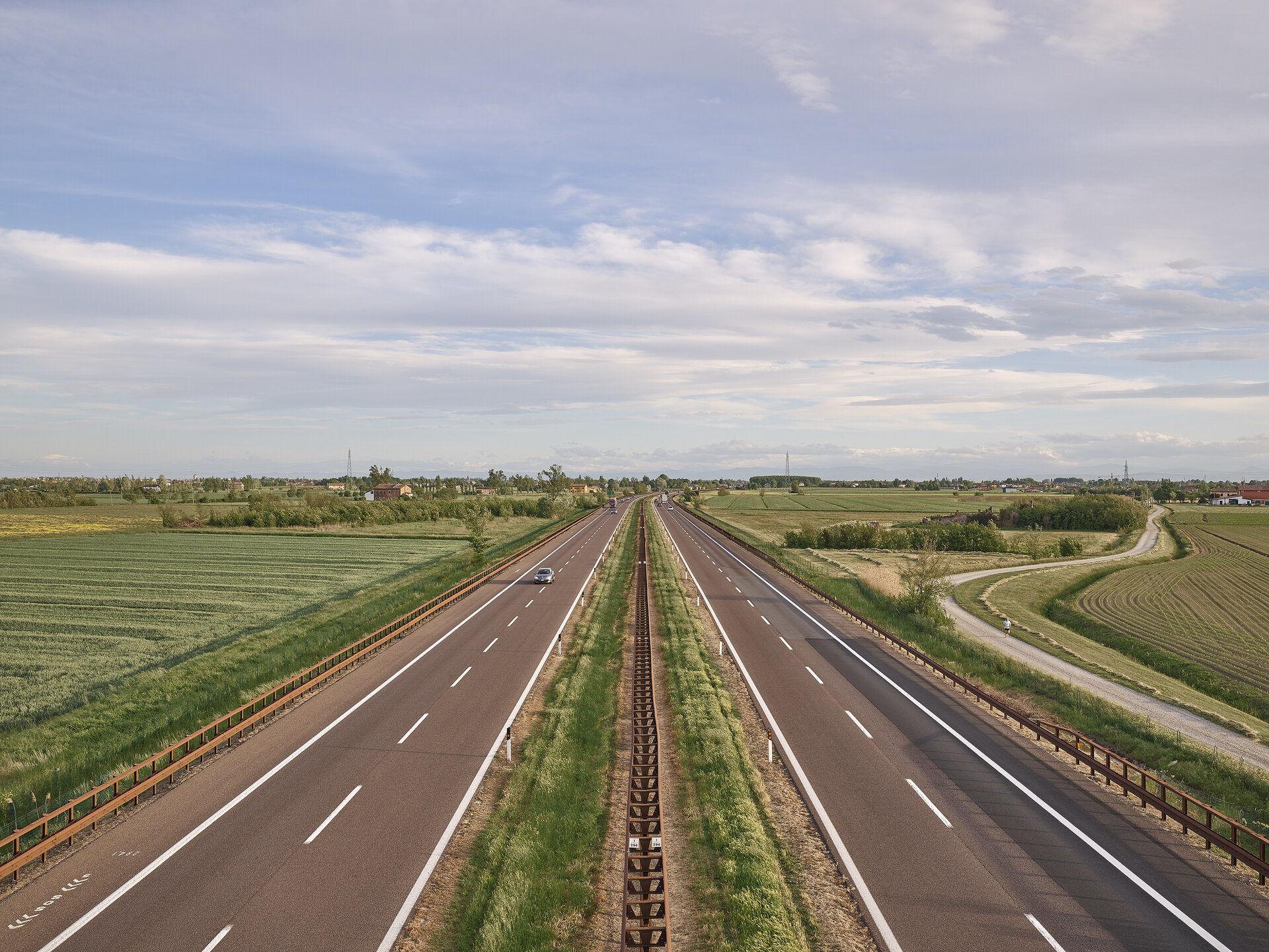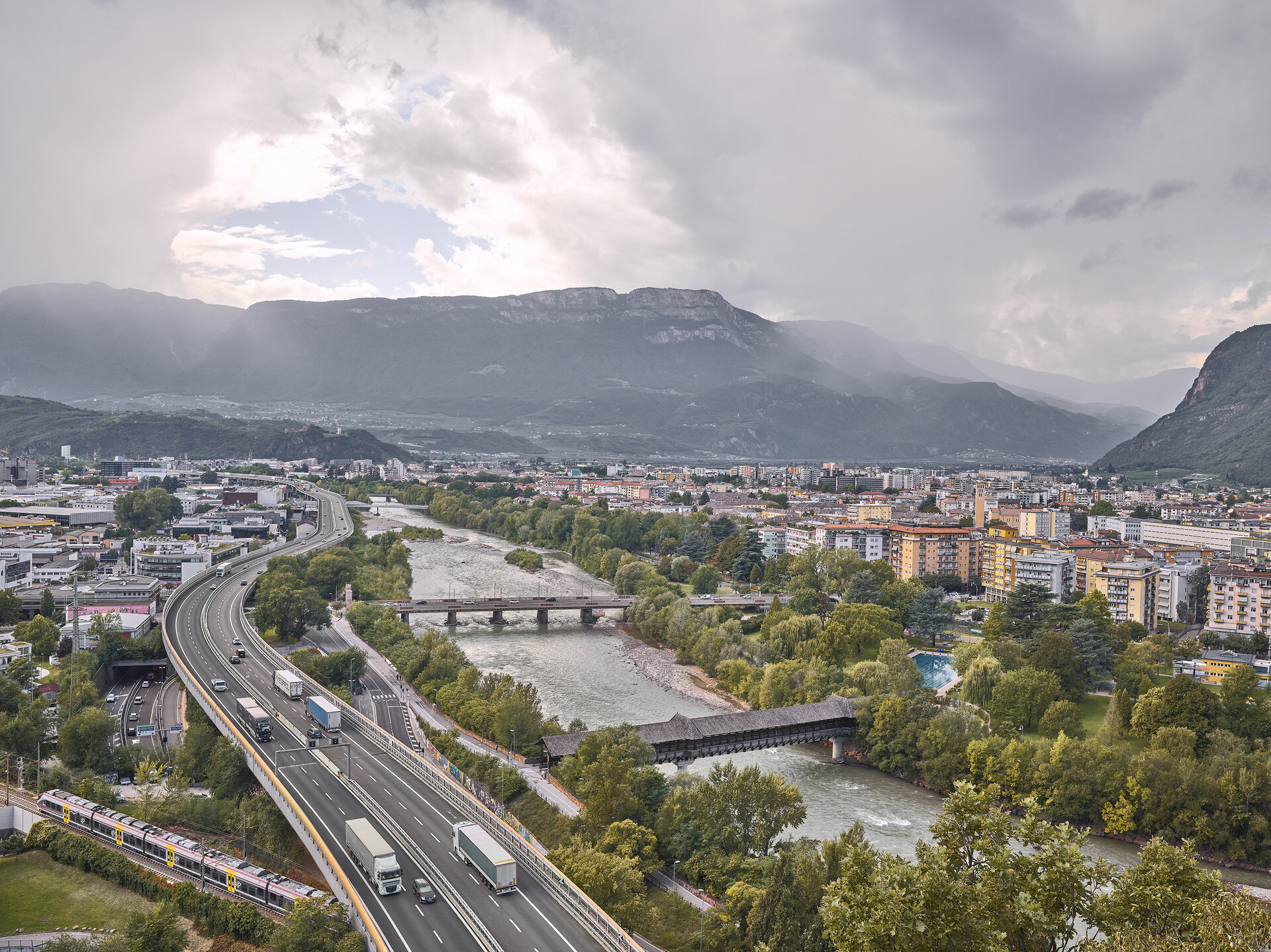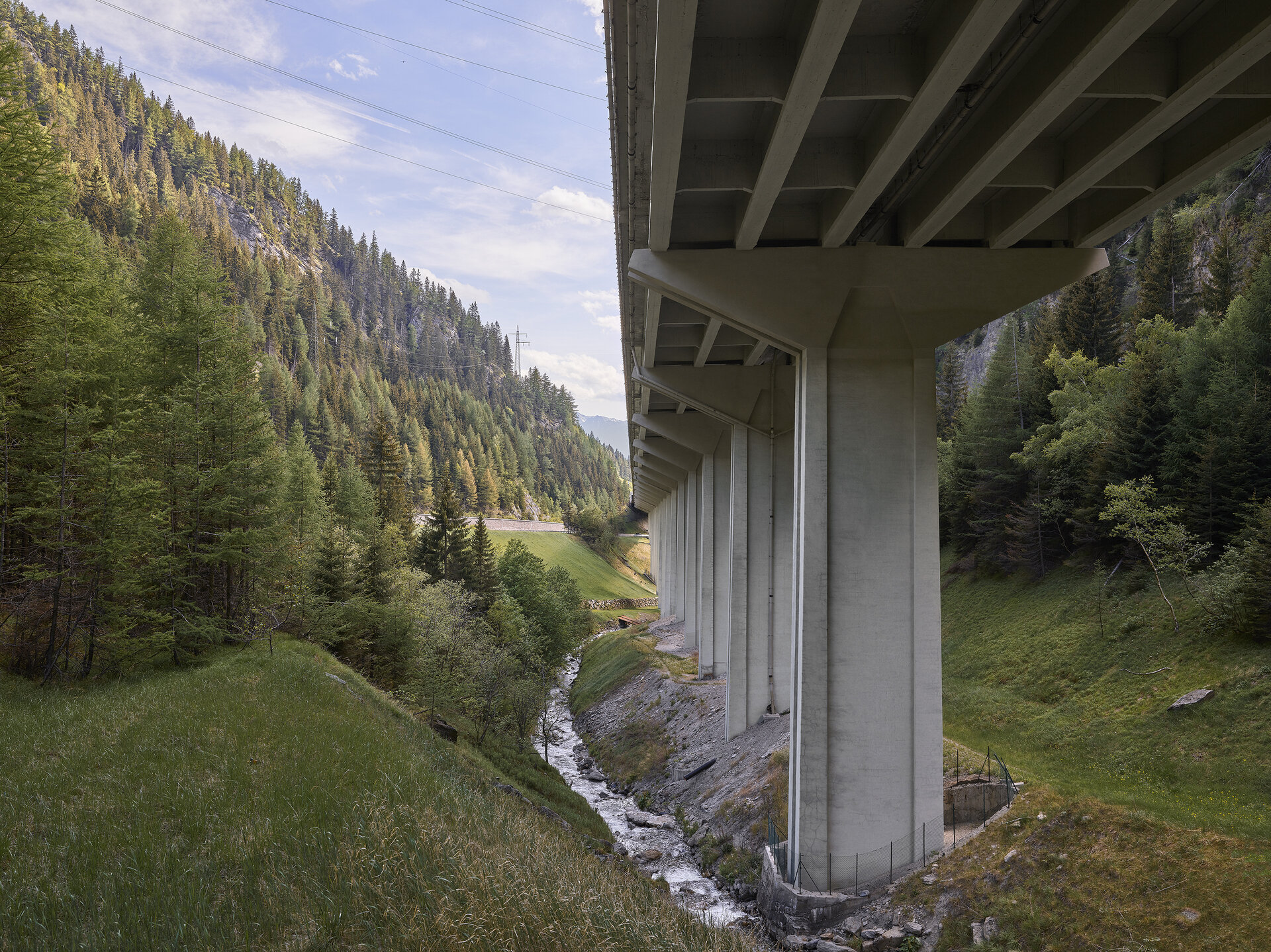The exhibition "Autostrada del Brennero. Architecture and Landscapes", curated by Andrea Gritti, Elena Fontanella and Claudia Zanda (Department of Architecture and Urban Studies of the Politecnico di Milano) and can be visited from the beginning of October 2023 until 4 February 2024.
The photos are by Giovanni Hänninen.
The exhibition is divided into two sections that run parallel to each other: Palimpsests and Iconographic Maps. The first analyses and breaks down the motorway with the methods used to investigate every other work in the area, recognising the phases of design, construction and maintenance that have taken place over time.
The documents that testify to this succession, from the 1960s to the present, highlight the complex balance between the needs to transform and preserve the whole consisting of the infrastructure and the territories crossed. Important authors contributed to the design and construction of the Brenner Motorway: from Pietro Porcinai (1910-1986), who was entrusted in 1965 with a consultancy assignment for the landscaping of the infrastructure, to the brothers Bruno (1925-1988) and Lino Gentilini (1933-2001), who were involved in the first solutions and then in the creation of the major works of art; from Costantino Dardi (1936-1991), who was responsible for the project of the Garda Ovest service area, to the technicians of the concessionaire company, who created new works and guaranteed the efficiency of the original ones. The traces of these actions are imprinted in the long diagram that locates, in section and in plan and at two reference scales (1:10,000 for distances and 1:500 for heights and depths), the knots and the major works of art present today along the route. Arranged according to their actual geographical sequence, between the Po Valley and the Alps, reliefs and projects, photographs and films make up a dense 'picture gallery', whose task is to demonstrate how the Brenner Motorway is a text, constantly written and rewritten: a schedule within the territorial schedule, ready to receive new and future impulses. "Every single intervention designed along the axis – explains the General Technical Director of Autostrada del Brennero SpA Carlo Costa - responds not only to criteria of efficiency and safety, but is designed to build an osmotic relationship with the surrounding territory in a logic of environmental sustainability. These criteria are met by works of art from the past and present, from overloads to sound-absorbing barriers to Cor-ten steel safety guards, but also by the future restyling of service areas, designed as true hubs of innovation and eco-sustainability".
The iconographic maps section embodies the attempt to translate the linearity of the route into a narrative mode: on the walls are the photographs made by Giovanni Hänninen, to document the acceleration of the transformations carried out at the edges of the motorway in the ‘Po Valley megalopolis’, the persistent design of the soils on the sides of the Adige and Isarco rivers, the apparent fixity of the Alpine context. The floor shows the motorway route (in 1:10,000 scale), to which the 15 three-dimensional models refer in the centre of the room, representing (in 1 :2000 scale) the territory arranged within a radius of 500 metres from the 22 service areas of the A22. On one of the screens, the thematic maps are projected, which Marco Voltini elaborated using the resources of geographical information systems (GIS), to relaunch from the point of view of 'in-flight' observation, how much the photographs had captured 'on the ground'.



